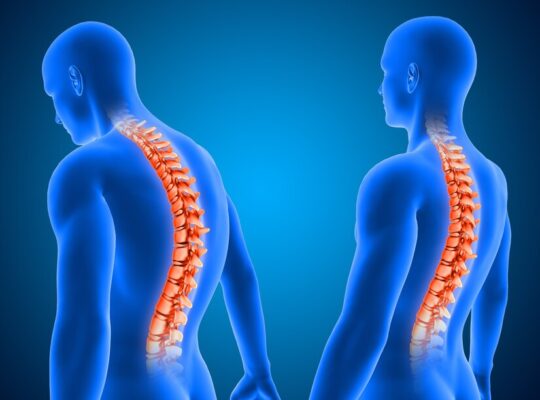The Physical Importance of Walking in the Evening
Better Heart Health
Pregnant women, and those with high blood pressure, respiratory illnesses, and other chronic diseases should walk regularly in the evening as it benefits heart health. It improves blood flow, reduces cholesterol levels, and is very effective in managing High BP. If you are consumed with a disease, it will be crucial to have a fit heart to avoid cardiovascular conditions. A daily evening walk can also benefit those with diseases like CKD (chronic kidney disease), as moderate exercise is important for keeping kidneys healthy.
Weight Management
For anyone who wants to lose weight or stay slim, incorporating a walk into daily life is a handy way to achieve it. A walk, especially in the evening, is good for metabolism and can effectively burn extra calories. Besides that, walking also helps maintain cholesterol levels and prevents obesity.
Enhanced Digestion
After eating a heavy meal, we often feel tired. One of the ways a walk in the evening benefits the body is by enhancing the movement of food in the digestive system. Walking also increases the secretion of digestive enzymes, making it suitable for everyone who wants to improve digestion. For instance, combining an evening walk with vitamins for digestion can maximize digestive efficiency.
Building Muscles and Bones
Strolling during the evening strengthens muscles and bones, which is essential as we age. Walking is good for building strong bones and preventing diseases like osteoporosis. It can also be part of fitness routines like building biceps and back muscles. Patients recovering from procedures like total knee replacement (TKR) find gentle evening strolls helpful.
Mental and Emotional Benefits
Stress Reduction and Mental Clarity
Walking in the evening has significant mental benefits. It can clear your mind after a long day and significantly reduce stress and anxiety. Nighttime strolls are beneficial for patients with mental illnesses like Obsessive Compulsive Disorder (OCD), as walking can help shift their focus.
Improved Sleep Quality
Another evening walk benefit is better sleep quality, which many people seek. Walking regularly helps correct body clock rhythms, assisting those with insomnia or irregular sleep patterns. A light walk after dinner can be particularly helpful.
Mood Enhancement
Walking triggers the production of endorphins, the body’s natural antidepressants. An evening walk can have a therapeutic effect, providing overall well-being and reducing depression symptoms. Walking outdoors, breathing fresh air, and enjoying nature also boost mood.
Boost in Creativity
Many creative professionals find that walking enhances their thinking processes. Whether brainstorming or solving a problem, an evening walk is a perfect opportunity to do so. Walking can be an essential part of time management and productivity strategies.
Nightly Stroll as a Measure of Fighting Diseases
Lowering the Risk of Chronic Diseases
Walking daily can lower the risk of chronic diseases, including diabetes, high blood pressure, cancer, and others. Research shows that walking boosts immunity, reducing the risk of cancers like blood cancer.
Strengthening Immunity
Evening walks also strengthen the immune system. Exercise activates immune cells, helping to prevent common diseases like flu, cold, and typhoid. Regular walks can significantly boost immunity and keep you healthy.
Lowering Inflammation
Walking reduces inflammation in the body, which helps combat diseases like pyogenic liver abscess and pancreatitis. Reducing stress and improving circulation through regular walks also lowers inflammation.
Managing Joint Pain
Conditions like arthritis or trochanteric bursitis benefit from walking to reduce pain and stiffness. Walking helps lubricate the joints and increase flexibility, providing long-term mobility improvement.
A Perfect Routine for Fitness
Low-Impact, High-Benefit Exercise
Walking is a low-impact exercise suitable for everyone, regardless of age or health condition. It can be practiced in the evenings by people recovering from fractures, like Colles fractures, or managing ongoing health issues.
Discipline and Routine
Evening walks promote discipline and adherence to a routine, similar to sticking to other time-management principles. Regular walking yields great results over time.
Breathing and Relaxation
Deep breathing during an evening walk increases oxygen supply to the tissues and regulates the nervous system. Proper breathing, like breathing in or out deeply, is crucial for a successful walk.
Exercise for Social Contact
Bonding with Loved Ones
Walking with family or friends can enhance relationships, making exercise a social activity. Group walks encourage consistency and can be a fun way to spend time together.
Connection for Better Mental Health
Walking with others benefits patients with conditions like bipolar disorder or schizophrenia. The social interaction and emotional support can significantly boost mental health.
Evening Walk: Facts and Myths
10 FAQs about Evening Walks:
Is an evening walk good for digestion?
Yes, it helps digestion, especially when combined with vitamins for digestion.
Does an evening walk help with weight loss?
Yes, it burns calories and improves metabolism, especially when paired with a cholesterol-lowering diet.
Can evening walks boost mental health?
Yes, they increase endorphin production, which helps reduce stress and is effective for treating Obsessive Compulsive Disorder (OCD).
Is it safe to walk after dinner?
Yes, walking after dinner helps digestion and improves sleep.
What is the ideal duration for an evening walk?
Walking for at least 30 minutes daily is recommended, but any amount of walking offers benefits.
Can evening walks reduce high blood pressure?
Yes, walking helps control High B.P. by improving circulation and reducing stress.
Are evening walks better for joint pain?
Yes, especially for people with conditions like trochanteric bursitis.
Can walking reduce inflammation?
Yes, it helps reduce inflammation, which is important for managing conditions like pyogenic liver abscess.
How does walking boost immunity?
It strengthens the immune system, helping prevent illnesses like typhoid and the common cold.
Can evening walks improve sleep quality for those with joint pain?
Yes, walking helps establish a sleep routine, especially for those with conditions like Osteoarthritis.
Introducing evening walks into your life can transform your health, from weight management to mental clarity. Whether your goal is to improve digestion, reduce stress, or simply stay active, evening walk benefits are undeniable.












